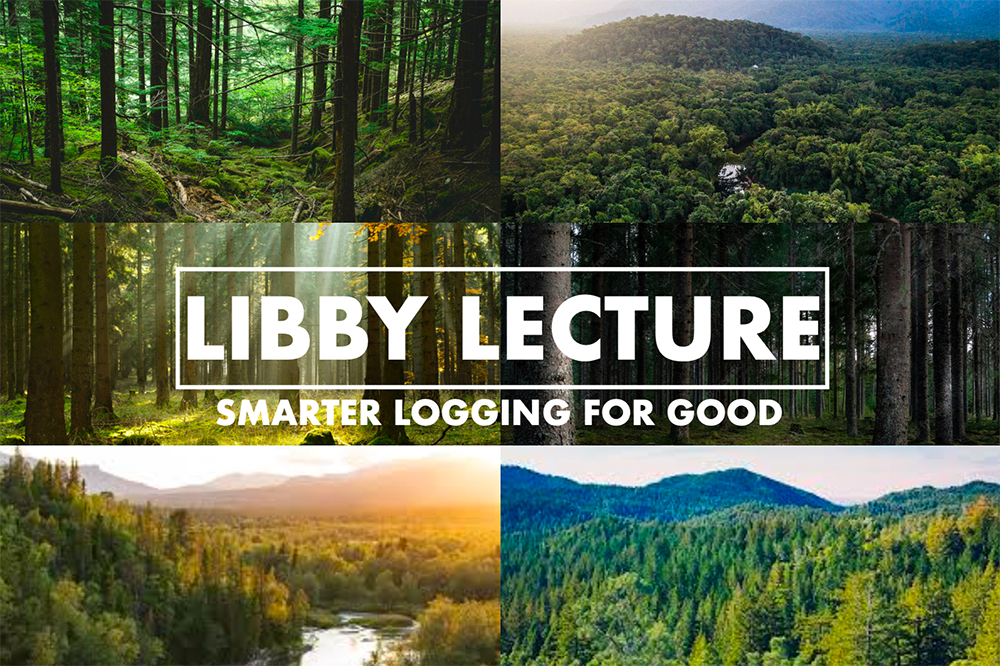Peter Ellis, the global director of natural climate solutions science at the Nature Conservancy based out of Portland, Maine, visited the University of Maine campus on Sept. 21 to present at the school’s fourth annual Libby Lecture in Natural Resource Policy.
When thinking of the Amazon Rainforest, descriptions like beautiful or tropical might come to mind. However, there is a specific concept that has become a key topic in a majority of discussions on the Amazon and other tropical forests around the world. Deforestation, which eliminates millions of acres of trees each year, is a prevalent climate change issue as it leads to the release of large amounts of carbon dioxide and other greenhouse gasses into the atmosphere. Forests are cleared away for a variety of reasons, such as to obtain wood for fuel use, but forester and ecologist Ellis recognizes the need for change in the industry.
“RIL-C practices [can be used] to avoid damage and sustain timber production,” Ellis said.
The Nature Conservancy developed Reduced-Impact Logging for Climate (RIL-C) as a way to maintain the necessary level of timber production while limiting forest damage. It also meticulously measures the apparent reductions in greenhouse gas emissions resulting from this approach.
Ellis explained that there are other ways to keep carbon stored in forests, including the practice of harvesting wood less frequently, establishing reserves that are free from logging or focusing on enhanced growth.
However, RIL-C is the primary solution he advocates for. Through the implementation of reduced-impact logging, Ellis estimates that one-third of a gigaton of climate mitigation could be saved per year in tropical countries. There could also be a decrease in wood waste if the effort is made to avoid cutting down hollow trees and to recover the wood from all trees that are already chopped down. Another benefit includes having a smaller hauling footprint due to limiting the size of log yards and the roads used to transport wood to what is absolutely necessary.
It might be beneficial to understand the context surrounding the issue of typical logging practices in order to see why Ellis and other environmental advocates are pushing for sustainable development.
“Less than 20% of tropical forests are selectively logged for the timber we use,” Ellis said.
This means that trees are carelessly cut down and often wasted. It is also expected that up to 9% of forest biomass is eliminated, with only about 2% successfully harvested as a result of the outdated approach to logging.
A key focus of this year’s Libby Lecture was the Family Forest Carbon Program’s plan to increase climate-focused forest management on small ownerships, which is being tested here in the U.S. after receiving $35 million in funding from the United States Department of Agriculture.
In collaboration with the American Forest Foundation, this program plans to create a new, dynamic approach to carbon accounting and forestry management methodology that collaborates with small forest landowners. Ellis estimates that this research will be released in the near future, as it is currently under review, and he hopes that it will be widely adopted around the U.S. as efforts to combat climate change persist.
For more information on the topics covered in this year’s Libby Lecture in Natural Resource Policy, visit https://www.nature.org or https://www.forestfoundation.org .








